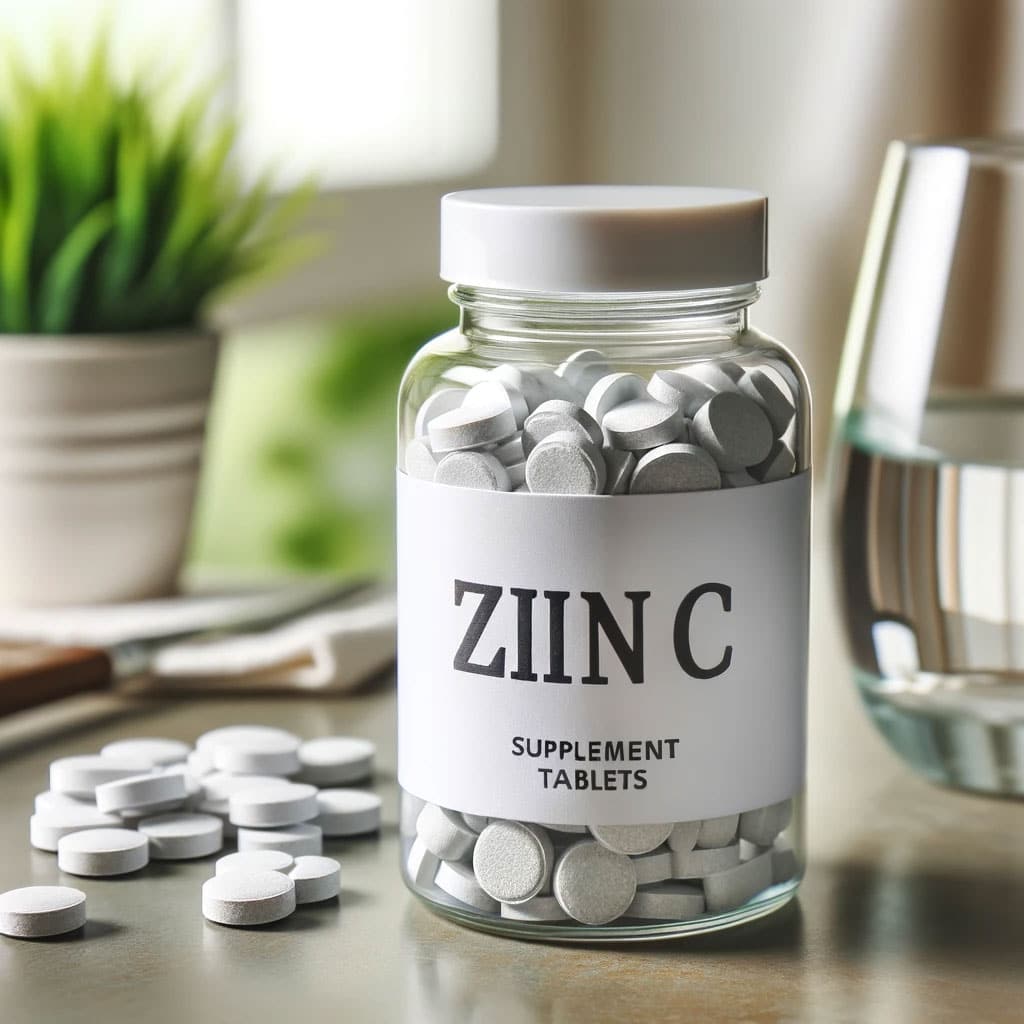Acne is a common skin condition affecting millions of people worldwide. It is often caused by a combination of factors, including hormonal imbalances, genetics, poor hygiene, and even diet.
In recent years, researchers have been investigating the role of vitamins and minerals in acne prevention and treatment. This growing body of evidence suggests that certain nutrients may play a crucial role in maintaining skin health and managing acne.
The Importance of Vitamins and Minerals

Vitamins and minerals play a crucial role in maintaining the overall health of our body, including our skin. In particular, they can be beneficial in acne prevention and treatment.
To better understand their role, let’s dive into the functions of certain key vitamins and minerals and how they can contribute to healthy skin.
Vitamin A is essential for maintaining healthy skin, as it promotes cell turnover and prevents the accumulation of dead skin cells, thereby reducing the likelihood of clogged pores¹. It can be found in foods such as carrots, sweet potatoes, and spinach.
Vitamin C is vital in collagen synthesis, which contributes to the strength and elasticity of the skin². It also has antioxidant properties that help protect the skin from free radical damage. Good sources of vitamin C include citrus fruits, strawberries, and bell peppers.
Vitamin E acts as an antioxidant, protecting the skin from oxidative stress and inflammation³. Foods rich in vitamin E include almonds, sunflower seeds, and avocados.
Zinc is known for its immune system support and wound-healing properties. It helps control the production of oil in the skin and has anti-inflammatory effects. Zinc can be found in foods such as oysters, beef, and pumpkin seeds.
Selenium is another powerful antioxidant that protects the skin from oxidative damage⁵. It helps maintain skin elasticity and can be found in Brazil nuts, fish, and whole grains.
Incorporating these vitamins and minerals into your diet through nutrient-dense foods is the best way to ensure healthy skin. However, if for any reason it’s difficult to consume adequate amounts of food, supplements can be considered. Remember to consult a healthcare professional before starting any supplement regimen.
Vitamins and their Function in Skin Health

Vitamin A and Acne
Vitamin A plays a crucial role in promoting healthy skin. It helps regulate the production of sebum, an oily substance produced by the skin’s sebaceous glands, which is responsible for clogging the skin’s pores and causing acne breakouts1.
In addition, vitamin A assists in skin cell turnover, allowing dead skin cells to shed more effectively, which helps keep the pores clear and reduces the chances of developing acne2. To ensure sufficient vitamin A intake, include foods such as eggs, carrots, and sweet potatoes in your diet.
Vitamin C and Skin Healing
Vitamin C is well-known for its role in skin health and wound healing3. It aids in the synthesis of collagen, which is essential for maintaining the skin’s elasticity and structure, and also helps neutralize harmful free radicals responsible for causing skin damage and inflammation4.
To incorporate vitamin C into your diet, consume citrus fruits like oranges, strawberries, and pineapples, as well as vegetables like bell peppers, broccoli, and Brussels sprouts.
Vitamin E and its Antioxidant Role
Vitamin E is a potent antioxidant that helps safeguard the skin from harmful environmental factors, such as ultraviolet (UV) radiation and pollution5. It also has a moisturizing effect on the skin and supports the skin’s natural healing process. Foods rich in vitamin E include almonds, sunflower seeds, avocados, and spinach.
Vitamin B3 and Its Anti-Inflammatory Property
Vitamin B3, or niacin, is another vital nutrient for skin health. It possesses anti-inflammatory properties that can help alleviate redness and inflammation related to acne6. Vitamin B3 also works to improve the skin’s moisture barrier, leading to a more balanced and hydrated complexion. Some excellent sources of vitamin B3 include fish, lean meats, whole grains, and legumes.
Footnotes
- https://pubmed.ncbi.nlm.nih.gov/32602055/ ↩
- https://www.verywellhealth.com/vitamins-for-the-skin-5084899 ↩
- https://link.springer.com/article/10.1007/s13668-020-00322-4 ↩
- https://www.ncbi.nlm.nih.gov/pmc/articles/PMC7827176/ ↩
- https://link.springer.com/content/pdf/10.1007/s13668-020-00322-4.pdf ↩
- https://www.ncbi.nlm.nih.gov/pmc/articles/PMC7764511/ ↩
Minerals and their Role in Skin Health
Minerals play a crucial role in maintaining healthy skin, particularly in preventing and treating acne. In this section, we will explore the roles of zinc, selenium, and iron in skin health and their specific contributions to acne prevention and treatment.
Zinc and its Anti-Inflammatory Role

Zinc is an essential mineral found in various enzymes and proteins within the skin. It is known for its anti-inflammatory properties, which can help reduce redness and irritation associated with acne.
Studies have shown that individuals with acne tend to have lower zinc levels than those without acne, suggesting a possible link between zinc deficiency and acne development 1.
Some potential benefits of zinc for acne prevention and treatment include:
- Regulating the production of skin oils (sebum)
- Supporting the immune system in fighting bacteria and infections
- Promoting the healing of acne lesions
Zinc can be found in various food sources, such as red meat, poultry, seafood, whole grains, and legumes. In addition to dietary intake, zinc supplements, and topical products can also be used to help improve skin health and acne.
Selenium and Its Antioxidant Effect
Selenium is another essential mineral that plays a significant role in skin health, mainly due to its antioxidant properties. Antioxidants help protect the skin from damage caused by free radicals, which can contribute to acne development and inflammation 2.
Some potential benefits of selenium for acne prevention and treatment include:
- Reducing skin inflammation and irritation
- Strengthening the skin’s natural barriers
- Preventing acne scarring
Selenium can be found in various food sources, such as Brazil nuts, fish, and poultry. As with zinc, selenium supplements and topical products can be used to support skin health and acne treatment.
Iron’s Role in Oxygen Transport
Iron is an essential mineral necessary for the transport of oxygen to various parts of the body, including the skin. Adequate oxygen supply to the skin supports essential processes, such as cellular metabolism and collagen production, which are crucial for maintaining skin health 3.
Although the direct relationship between iron and acne is not well established, iron deficiency can impact overall skin health, potentially increasing the risk of acne development. Some possible ways in which iron contributes to skin health include:
- Supporting wound healing and tissue repair
- Enhancing skin hydration and elasticity
- Strengthening the skin’s natural defense mechanisms
Iron-rich food sources include red meat, poultry, seafood, beans, and fortified cereals. It’s essential to maintain a balanced diet to ensure adequate iron intake for overall health, including skin health and acne prevention.
Footnotes
- https://lpi.oregonstate.edu/mic/health-disease/skin-health/minerals ↩
- https://pubmed.ncbi.nlm.nih.gov/32602055/ ↩
- https://www.ncbi.nlm.nih.gov/pmc/articles/PMC7827176/ ↩
Preventing Acne Through Proper Nutrition

Impact of Diet on Skin Health
A balanced diet plays a crucial role in maintaining healthy skin. Research indicates that certain nutrients can significantly influence the severity and frequency of acne vulgaris (AV) outbreaks.
For instance, vitamins A, C, D, E, and B, as well as mineral elements such as zinc and selenium, are beneficial in acne treatment and prevention. Proper nutrition can not only prevent or alleviate AV but also increase treatment efficacy.
Foods Rich in Skin-Friendly Vitamins and Minerals
To maintain healthy skin and minimize the risk of developing acne, it is essential to consume foods rich in skin-friendly vitamins and minerals. Here are some nutrient-rich foods that promote skin health:
- Vitamin A: Foods such as sweet potatoes, carrots, and dark leafy greens are rich in Vitamin A, which helps regulate skin cell production and reduce inflammation.
- Vitamin C: Citrus fruits, strawberries, and bell peppers contain Vitamin C, which promotes collagen production and helps reduce oxidative stress.
- Vitamin D: Fatty fish like salmon and mackerel, fortified dairy products, and egg yolks provide Vitamin D, which supports skin cell growth and reduces inflammation.
- Vitamin E: Nuts, seeds, and vegetable oils are excellent sources of Vitamin E, which is crucial for skin hydration and protection against UV damage.
- B Vitamins: Whole grains, eggs, and lean meats offer a variety of B Vitamins, which support skin barrier function and help control inflammation.
- Zinc: Oysters, beef, and pumpkin seeds are all great dietary sources of zinc, a mineral that helps regulate oil production and reduce inflammation.
- Selenium: Brazil nuts, seafood, and whole wheat products contain selenium, an antioxidant that can help protect the skin from damage caused by free radicals.
Incorporating these foods into your daily diet can support skin health and prevent acne outbreaks. Remember to consult with a healthcare professional before making significant changes to your diet, especially if you have chronic health conditions or allergies.
Role of Supplementation in Acne Treatment
In the treatment of acne, certain vitamins and minerals play an essential part. Not only do they help prevent its occurrence, but they can also improve the efficacy of existing treatments. This section explores the best supplements for acne prevention and treatment.
Best Supplements for Acne
- Vitamin A: Essential for skin health, vitamin A reduces sebum production and helps to balance the skin’s natural oils. This nutrient is available in supplements like retinoids and can be found in topical acne treatments.
- Vitamin C: A powerful antioxidant, vitamin C helps neutralize harmful free radicals and contributes to reduced inflammation. Additionally, it promotes collagen production, which aids in skin repair. Consider taking a vitamin C supplement or applying a topical serum.
- Vitamin D: Research suggests that individuals with acne often have lower levels of vitamin D. Moreover, it helps regulate the immune system, reducing inflammation and combating acne-causing bacteria.
- Vitamin E: Another essential antioxidant, vitamin E protects the skin against damage caused by free radicals and oxidative stress. Many skincare products, such as creams and serums, contain vitamin E to nourish the skin.
- Zinc: Known for its antibacterial and anti-inflammatory properties, zinc plays an important role in the regulation of sebum, thereby reducing acne breakouts. Zinc supplements can be taken orally or applied topically.
- Selenium: This mineral can prove beneficial in fighting acne by reducing inflammation and promoting the body’s natural antioxidant defenses. Additionally, it enhances the effects of other antioxidants like vitamins C and E.
While supplementation can help prevent and treat acne, it is crucial to consult a healthcare professional before starting any new supplement regimen. They can help identify which vitamins and minerals may be most beneficial for an individual’s unique needs and ensure that safe, appropriate doses are consumed.

